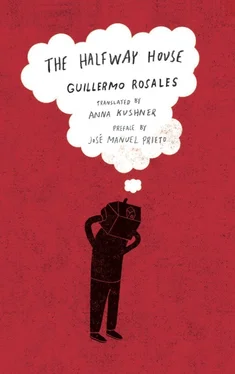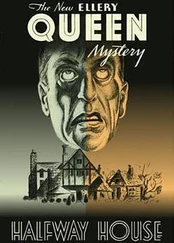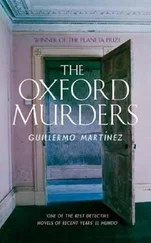Because in the halfway house, no one has anyone. Old Ida has two kids in Massachusetts who want nothing to do with her. Quiet Pino is all alone and doesn’t have anyone at all in this huge country. René and Pepe, the two mentally retarded guys, could never live with their weary relatives. Old one-eyed Reyes has a daughter in Newport that he hasn’t seen in fifteen years. Hilda, the old lady with cystitis, doesn’t even know her own last name. I have an aunt … but “nothing more can be done.” Mr. Curbelo knows all of this. He knows it well. That’s why he is so sure that no one will leave the halfway house and that he will continue to receive the checks for $314 that the American government sends for each one of the crazy people in his hospice. There are twenty-three nuts: $7,222. Plus, with another $3,000 that comes from I don’t know what supplemental source, it comes to $10,222 a month. That’s why Mr. Curbelo has a well-appointed house in Coral Gables and a farm with racehorses. That’s why he spends his weekends perfecting the fine art of deep-sea fishing. That’s why his kids’ photos appear in the local paper on their birthdays, and he goes to society parties wearing tails and a bow tie. Now that my aunt is gone, his face, once warm, eyes me with cold indifference.
“Come along,” he says dryly. He takes me down a narrow hallway to a room, number four, where another crazy guy is sleeping with a snore that reminds me of an electric saw.
“This is your bed,” he says, without looking at me. “This is your towel,” and he points at a threadbare towel full of yellowish stains. “This is your closet, and this is your soap,” and he takes half a piece of white soap from his pocket and hands it to me. He doesn’t say another word. He looks at his watch, realizes how late it is and leaves the room, closing the door behind him. Then I put my suitcase on the floor, place my small television set on top of the armoire, open the window wide and sit on the bed assigned to me with the book of English poets in my hands. I open it at random, to a poem by Coleridge:
God save thee, ancient mariner!
From the fiends that plague thee thus! —
“Why look’st thou so?” —With my cross bow
I shot the Albatross.
The door to the room suddenly opens and a robust figure, with skin as dirty as puddle water, comes in. He has a can of beer in his hand and takes several sips from it while giving me the once-over out of the corner of his eye.
“You’re the new guy?” he asks after a while. “Yes.”
“I’m Arsenio, the guy who takes care of things when Curbelo leaves.”
“Okay.”
He looks at my suitcase, my books and stops at my small black-and-white TV set.
“Does it work?”
“Yes.”
“How much did it cost you?"
“Sixty dollars.”
He takes another swig, without taking the corner of his eye off of my TV set. Then he says, “Are you going to eat?”
“Yes.”
“Then get going. The food’s ready.”
He turns around and leaves the room, still drinking from his can. I’m not hungry, but I should eat. I only weigh 115 pounds, and I tend to get woozy. People on the street sometimes yell “ Worm! ” at me. I throw the book of English poets on the bed and button up my shirt. My pants swim around my waist. I should eat.
I head toward the dining room.
Miss Caridad, the one in charge of distributing food to the crazy people, points out the only open spot to me. It’s a seat next to old one-eyed Reyes, and across from Hilda, the decrepit old hag whose clothes reek of urine, and Pepe, the older of the two mentally retarded men. They call this table “the untouchables’ table,” since no one wants to be with them when it’s time to eat. Reyes eats with his hands, and his enormous glass eye, as big as a shark’s eye, constantly oozes watery pus that falls down to his chin like a large yellow tear. Hilda also eats with her hands and does so reclined in her chair, like a marchioness eating delicacies, so that half of the food ends up on her clothes. Pepe, the retarded guy, eats with an enormous spoon that looks like a spade. He chews slowly and loudly with his toothless jaw, and his whole face, up to his large popping eyes, is full of peas and rice. I bring the first spoonful to my mouth and chew slowly. I chew once, three times, and then I realize that I can’t swallow it. I spit everything out onto my plate and leave. When I get to my room, I notice that my TV set is missing. I look for it in my closet and under the bed, but it’s not there. I go in search of Mr. Curbelo, but the person sitting at his desk now is Arsenio, the second in command. He takes a swig from his can of beer and informs me,
“Curbelo’s not here. What’s up?”
“My TV set has been stolen.”
“Tsk, tsk, tsk,” he moves his head in despair. “That was Louie,” he then says. “He’s the thief.”
“Where’s Louie?”
“In room number three.”
I go to room number three and find Louie the American, who howls like a wolf when he sees me come in.
“TV?” I say.
“Go to hell!” He exclaims, furious. He howls again. He throws himself at me and pushes me out of the room. Then he shuts the door with a loud slam.
I look at Arsenio. He smiles. But he hides it quickly, covering his face with the beer can.
“A sip?” he asks, holding the can out to me.
“No thanks, I don’t drink. When will Mr. Curbelo be in?”
“Tomorrow.”
Great. Nothing more can be done. I go back to my room and let myself fall heavily on the bed. The pillow stinks of old sweat. The sweat of other nuts who have been through here and shriveled up between these four walls. I throw it far away from me. Tomorrow I’ll ask for a clean sheet, a new pillow and a lock to put on the door so that no one enters without asking first. I look at the ceiling. It’s a blue ceiling, peeling, overrun with tiny brown cockroaches. Great. This is the end of me, the lowest I could go. There’s nothing else after this halfway house. Just the street and nothing more. The door opens again. It’s Hilda, the decrepit old hag who urinates on her clothes. She has come in search of a cigarette. I give it to her. She looks at me with kind-hearted eyes. I notice a certain beauty of yesteryear behind that revolting face. She has an incredibly sweet voice. With it, she tells me her story. She has never married, she says. She’s a virgin. She is, she says, eighteen years old. She’s looking for a proper gentleman to marry. But a gentleman! Not just anyone.
“You have beautiful eyes,” she says sweetly to me. “Thank you.”
“You’re welcome.”
I slept a little. I dreamt I was in a town in the provinces, back in Cuba, and that there wasn’t a soul in the whole town. The doors and windows were wide open, and through them you could see iron beds with very clean, tightly pulled white sheets. The streets were long and silent, and all of the houses were wooden. I was running around that town in distress, looking for anyone to talk with. But there was no one. Only open houses, white beds and total silence. There wasn’t a single hint of life.
I awoke bathed in sweat. In the bed next to me, the crazy guy who was snoring like a saw is awake now and putting on a pair of pants.
“I’m going to work,” he tells me. “I work all night at a pizza place and they pay me six dollars. They also give me pizza and Coca-Cola.”
He puts on a shirt and slides into his shoes.
“I’m an old slave,” he says. “I’m reincarnated. Before this life, I was a Jew who lived in the time of the Caesars.”
He leaves with a slam of the door. I look at the street through the window. It must be midnight. I get up from the bed and go to the living room, to get some fresh air. As I pass Arsenio’s room, the hospice manager, I hear bodies struggling and then the sound of a slap. I continue on my way and sit in a tattered arm chair that reeks of old sweat. I light a cigarette and throw my head back, fearfully remembering the dream I just had. Those white, tightly made beds, those wide open solitary houses, and I, the only living being in town. Then I see somebody coming out of Arsenio’s room. It’s Hilda, the decrepit old hag. She’s naked. Arsenio comes out behind her. He’s naked too. They haven’t seen me.
Читать дальше












